By Maxmilian Wechsler
At all times Thailand is home to a constantly changing cast of foreign diplomats and officials attached to diplomatic missions, as well as their families. They work at embassies, consulates and offices of international organizations. The latter are generally associated with United Nations-sponsored organizations. An important role of Thailand’s Ministry of Foreign Affairs (MFA) is to assist these men and women in any way possible from their first day of arrival on Thai soil, and by all accounts they do an excellent job. The professionalism and dedication of the MFA is well known to governments around the world, and very much appreciated.
At all times Thailand is home to a constantly changing cast of foreign diplomats and officials attached to diplomatic missions, as well as their families. They work at embassies, consulates and offices of international organizations. The latter are generally associated with United Nations-sponsored organizations. An important role of Thailand’s Ministry of Foreign Affairs (MFA) is to assist these men and women in any way possible from their first day of arrival on Thai soil, and by all accounts they do an excellent job. The professionalism and dedication of the MFA is well known to governments around the world, and very much appreciated.
| ACCORDING to MFA figures, 78 countries have embassies in Bangkok, staffed with close to 1,300 diplomats and officials who are registered with the ministry. The US embassy has a large percentage of these, almost equal to the combined numbers employed by the next four largest embassies of China, Australia, Japan and United Kingdom. Germany is in sixth place, followed by Russia. Around 700 spouses of diplomats and officials assigned to embassies in Bangkok also registered with the MFA as well. Several sources say a number of foreign officials operating in Thailand are not registered with the MFA. These are most likely to be officials who are here for only a short time. Some ambassadors who reside in Bangkok look after one or more other countries, mostly Thai neighbors but as far as the Philippines. |
The dean of the Bangkok diplomatic corps is presently the Singaporean ambassador, Her Excellency Mrs Chua Siew San. She took her post officially on March 23, 2012. Nine other women also hold the top position of an Ambassador in the embassies of Argentina, Bangladesh, Canada, Finland, Panama, Philippines, Sri Lanka, Sudan and Turkey.
In an addition, women are at this moment in charge of embassies of Cambodia, the Netherlands and Spain holding a position of chargé d’affaires a.i., chargé d’affaires and deputy head of mission respectively.
According to a document called Order of Precedence, Ambassadors Extraordinary and Plenipotentiary published by the MFA in June this year, 35 ambassadors assigned to Thailand reside outside the country. Five of them are women representing Liberia, Lithuania, Mozambique San Marino and Tonga.
The head of the Saudi Arabian mission to Thailand is not an ambassador, but chargé d’affaires. The Saudis withdrew their ambassador from Bangkok in 1993, after several incidents stemming from the 1989 theft of jewels belonging to the Saudi Arabian Royal Family by a Thai gardener. A businessman close to the Royal Family who came here to investigate the case was abducted and murdered. Three months later, three officials from the Saudi Embassy were shot to death in Bangkok. All four murders remain unsolved.
In an effort to placate Beijing and its unshakable one-China policy, the de-facto embassy of the Republic of China (Taiwan) is known as the Taipei Economic and Cultural Office. Located at Empire Tower on South Sathorn Road in Bangkok, the office includes economic, consular and educational sections as well as an immigration division that issues visas. Law enforcement liaisons are apparently also on hand.
The number of Taiwanese officials working at the skyscraper is not disclosed. Only 22 countries still maintain formal diplomatic ties with Taiwan. Panama is the latest country to switch to sole recognition of mainland China, in June of this year.
The MFA website also provide some information on 83 embassies of countries Thailand has a formal diplomatic relations but have their mission located in other capitals: 17 embassies are located in Beijing; one in Belmopan; two in Canberra; two in Colombo; two in Doha; one in Hanoi; five in Jakarta; 25 in Kuala Lumpur; 14 in New Delhi; one in Potgorica; one in San Marino; one in Seoul; one in Tallinn; nine in Tokyo, and one in Valletta.
Australia recently opened the newest embassy in Bangkok on Wireless Road on July 31 this year. The impressive and super-modern, five-storey complex includes the ambassador’s residence and is the fourth largest Australian mission in the world.
Meanwhile, the UK government is downsizing its physical presence in Thailand by selling off what is left of the British embassy on Wireless Road, despite opposition from many British expats. The new owner of this highly valuable plot of land is the Central Group. The embassy’s new location, the AIA building on Sathorn Road, will benefit from a new BTS Skytrain station to constructed between Chong Nongsi and Surasak stations.
There are 15 consulate-general offices representing 13 countries in Thailand, located in cities all over the country. In all they employ about 93 foreigners, 30 of them citizens of mainland China, which maintains consulate-general offices in Chiang Mai, Khon Kaen and Songkhla.
There are also 113 honorary consulates representing 85 countries in Thailand. They are located in Bangkok, Chiang Mai, Chiang Rai, Chonburi, Hua Hin, Khon Kaen, Koh Samui, Lampang, Pattaya, Phetchaburi, Phuket and Surat Thani. Austria, France, United Kingdom and Sweden have four honorary consulates in Thailand and Germany and Peru have three each. Honorary consulates are generally headed by distinguished and well-to-do Thai nationals, although some 26 foreigners are in charge at various locations.
A premium on protocol
It is the responsibility of the MFA’s Protocol Department to look after all foreign embassies, consulates, honorary consulates and international organizations attached to diplomatic missions. Its officials normally specialize in a particular region.
For example, the MFA’s Department of European Affairs is divided into the Central Europe, Eastern Europe, Western Europe and EU divisions. The Department of American and South Pacific Affairs is divided into the North America, Latin America and South Pacific divisions. Likewise, the Department of South Asian, Middle East and African Affairs is divided into South Asia and Central Asia, Middle East and Africa divisions. The officials at the Department of International Organizations are also experts in their particular effort and play an important part in smoothing the way for foreign missions in Thailand.
The experience and knowledge shown by officials at the MFA and other government organisation make them highly regarded by the Bangkok diplomatic community as a whole. Following are a few comments taken from past The BigChilli interviews with ambassadors assigned to Thailand:
In an addition, women are at this moment in charge of embassies of Cambodia, the Netherlands and Spain holding a position of chargé d’affaires a.i., chargé d’affaires and deputy head of mission respectively.
According to a document called Order of Precedence, Ambassadors Extraordinary and Plenipotentiary published by the MFA in June this year, 35 ambassadors assigned to Thailand reside outside the country. Five of them are women representing Liberia, Lithuania, Mozambique San Marino and Tonga.
The head of the Saudi Arabian mission to Thailand is not an ambassador, but chargé d’affaires. The Saudis withdrew their ambassador from Bangkok in 1993, after several incidents stemming from the 1989 theft of jewels belonging to the Saudi Arabian Royal Family by a Thai gardener. A businessman close to the Royal Family who came here to investigate the case was abducted and murdered. Three months later, three officials from the Saudi Embassy were shot to death in Bangkok. All four murders remain unsolved.
In an effort to placate Beijing and its unshakable one-China policy, the de-facto embassy of the Republic of China (Taiwan) is known as the Taipei Economic and Cultural Office. Located at Empire Tower on South Sathorn Road in Bangkok, the office includes economic, consular and educational sections as well as an immigration division that issues visas. Law enforcement liaisons are apparently also on hand.
The number of Taiwanese officials working at the skyscraper is not disclosed. Only 22 countries still maintain formal diplomatic ties with Taiwan. Panama is the latest country to switch to sole recognition of mainland China, in June of this year.
The MFA website also provide some information on 83 embassies of countries Thailand has a formal diplomatic relations but have their mission located in other capitals: 17 embassies are located in Beijing; one in Belmopan; two in Canberra; two in Colombo; two in Doha; one in Hanoi; five in Jakarta; 25 in Kuala Lumpur; 14 in New Delhi; one in Potgorica; one in San Marino; one in Seoul; one in Tallinn; nine in Tokyo, and one in Valletta.
Australia recently opened the newest embassy in Bangkok on Wireless Road on July 31 this year. The impressive and super-modern, five-storey complex includes the ambassador’s residence and is the fourth largest Australian mission in the world.
Meanwhile, the UK government is downsizing its physical presence in Thailand by selling off what is left of the British embassy on Wireless Road, despite opposition from many British expats. The new owner of this highly valuable plot of land is the Central Group. The embassy’s new location, the AIA building on Sathorn Road, will benefit from a new BTS Skytrain station to constructed between Chong Nongsi and Surasak stations.
There are 15 consulate-general offices representing 13 countries in Thailand, located in cities all over the country. In all they employ about 93 foreigners, 30 of them citizens of mainland China, which maintains consulate-general offices in Chiang Mai, Khon Kaen and Songkhla.
There are also 113 honorary consulates representing 85 countries in Thailand. They are located in Bangkok, Chiang Mai, Chiang Rai, Chonburi, Hua Hin, Khon Kaen, Koh Samui, Lampang, Pattaya, Phetchaburi, Phuket and Surat Thani. Austria, France, United Kingdom and Sweden have four honorary consulates in Thailand and Germany and Peru have three each. Honorary consulates are generally headed by distinguished and well-to-do Thai nationals, although some 26 foreigners are in charge at various locations.
A premium on protocol
It is the responsibility of the MFA’s Protocol Department to look after all foreign embassies, consulates, honorary consulates and international organizations attached to diplomatic missions. Its officials normally specialize in a particular region.
For example, the MFA’s Department of European Affairs is divided into the Central Europe, Eastern Europe, Western Europe and EU divisions. The Department of American and South Pacific Affairs is divided into the North America, Latin America and South Pacific divisions. Likewise, the Department of South Asian, Middle East and African Affairs is divided into South Asia and Central Asia, Middle East and Africa divisions. The officials at the Department of International Organizations are also experts in their particular effort and play an important part in smoothing the way for foreign missions in Thailand.
The experience and knowledge shown by officials at the MFA and other government organisation make them highly regarded by the Bangkok diplomatic community as a whole. Following are a few comments taken from past The BigChilli interviews with ambassadors assigned to Thailand:
| His Excellency James Wise, former Australian Ambassador, August 2012: “I can say without any hesitation at all that the real strength of Thailand is the quality of its public officials. It is very hard to find any country in the region which has as high a quality of civil servants as Thailand. Whether it is foreign or other ministries, if we have an issue we want to raise we can be very confident that we will meet with people who understand the issue and who are keen to understand Australia’s perspective. “Equally important, Thai officials understand fully what Thailand’s interests are. They will always very professionally present that perspective, so we fully understand where there might be differences. The professionalism of the foreign ministry and the civil service is really impressive.” Former Indonesian Ambassador, H.E. Mr Luthi Rauf, in March 2013: “The embassy is close to the Ministry of Foreign Affairs, which makes it handy. I know many people at the Thai MFA and they are all professionals and very accessible. This is something all of us in the diplomatic community really appreciate.” H.E. Mr Marc Thill, former Ambassador of Luxembourg, November 2013: “As for diplomatic and governmental relations with Thailand, everything is going fine, and the officials of the Thai Foreign Ministry are very helpful, taking the initiative to inform foreign embassies on a regular basis on important topics. If you have any special concerns they are always open and available for appointments.” Former Hungarian Ambassador H.E. Mr Dénes Tomaj, August 2014: “I have had many good experiences while travelling outside Bangkok. I really enjoy trips organized by the Thai MFA. They have taken us every year for two or three days to different parts of the country. These are itineraries that wouldn’t be available for the average tourist. During one such trip we visited a Royal Development Project in Chiang Mai. We went to the top of a hill where a former opium producing area had been converted to a modern agricultural project. We saw beautiful strawberry fields where opium was grown before.” H.E. Mr Javier Becker, former Ambassador of Chile, November 2014: “My embassy has very good and close working relations with the Thai MFA. They are always very helpful. They are also good about arranging various activities and trips for us.” H.E. Mrs Saida Muna Tasneem, Ambassador of Bangladesh, October 2016: “The Thai government is very vibrant and proactive and every ministry organizes events designed to engage foreign diplomats. We get invited to a lot of opening ceremonies and I have appointments at many ministries to discuss commerce, trade, culture, tourism and so forth. I also get many invitations from other diplomatic missions, private dinners, ambassadors and also local community events. There’s a very large diplomatic community in Bangkok and I have made many good friends. It is really wonderful. We are very close and we meet often.” Russian Ambassador H.E. Mr Kirill Barsky, May 2016: “I have very good relations with the Thai authorities. I have met with Police General Wuthi Liptapallop. He is a very good partner and I am very proud to have his friendship. We have established a hotline between the embassy’s consular section and the RTP. We work directly with Pol Gen Wuthi and the officer under him. Whenever an accident or incident occurs which involves Russian citizens we immediately get in touch with the RTP and the Immigration Bureau, Ministry of Justice and Department of Special Investigations. It helps us to keep the situation under control and be aware of what is going on with our citizens and to help them when they are in trouble – or make trouble for those criminals who come to Thailand from time to time.” H.E. Mr Hazem El Tahri, Ambassador of Egypt, December 2016: “I appreciate that the MFA from time to time arranges trips for diplomats to get to know Thailand. They take us to places in the provinces like factories so we can learn about local products. This is something special. I am very happy with how the Thai MFA deals with the diplomatic missions. “We have good cooperation with them, but I have to say they are very strict in matters of protocol. I have served in many countries but here it is completely different, especially when it comes to presenting diplomatic credentials. “I really appreciate how Ms Kobkarn Wattanavrangkul, the Minister of Tourism and Sports, runs the ministry. She has really good ideas and she is very successful in her work. Sometimes I joke with her and ask her when she will come to Egypt to cooperate and exchange experiences in the field of tourism.” H.E. Mr Gilberto Fonseca-Guimarães de Moura, Ambassador of Brazil, March 2017: “I also find the ways that Thai people cultivate and nourish their culture very beautiful. Thai people are rightly proud of their culture and this is reflected in their great respect for family. These are values that we now unfortunately seem to be losing in some Western countries. “As far as working with Thai officials, the doors have always been open. To sum it all, it’s a real privilege to be here. “I am very satisfied with the great degree of cooperation extended from the Thai MFA and its Department of American and South Pacific Affairs, which I am very involved with. One Thai gentleman I met there recently speaks very good Portuguese. In fact, there’s one diplomat at the Thai embassy in Brasilia who can speak perfect Portuguese.” Malaysian Ambassador H.E. Ms Dato’ Nazirah Hussein, who left her post in June of this year: “Our relations have always been good, but I can honestly say that they are now better than ever. This includes the fields of trade, security, defence, sports, education, people-to-people interactions and culture. My relations with officials from Thai ministries, including the Ministry of Foreign Affairs, are excellent. The relations between our countries continue to strengthen and expand.” |

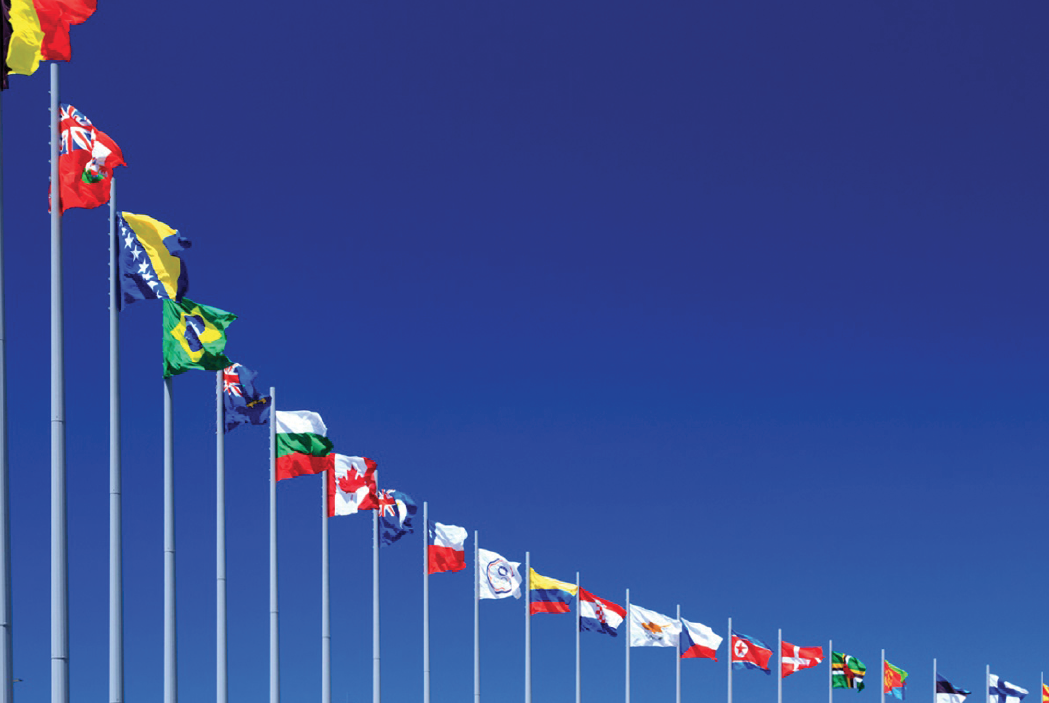
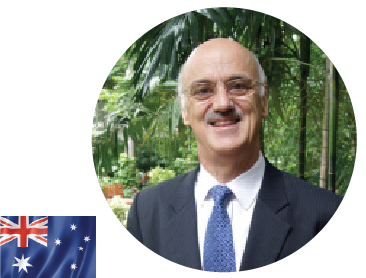
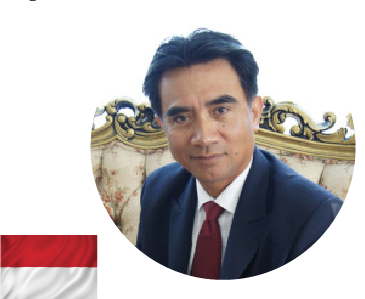
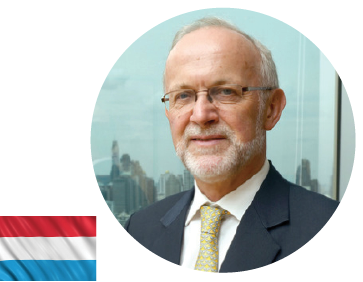
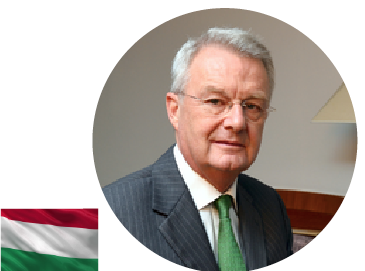
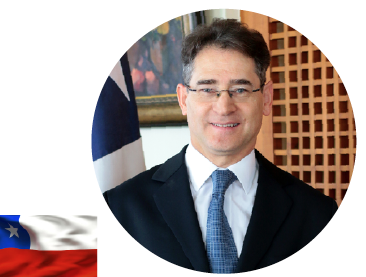
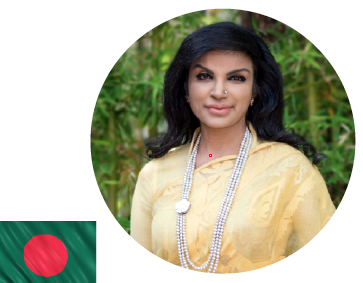
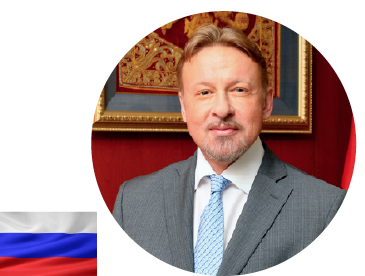
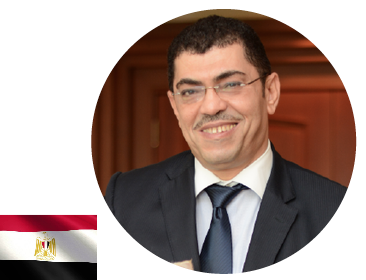
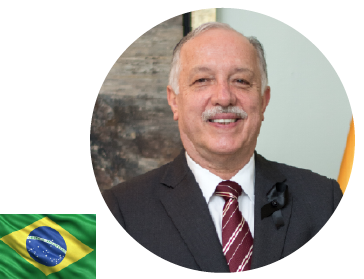
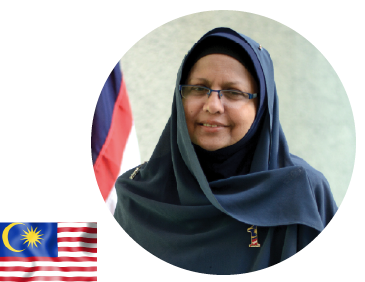
 RSS Feed
RSS Feed
















